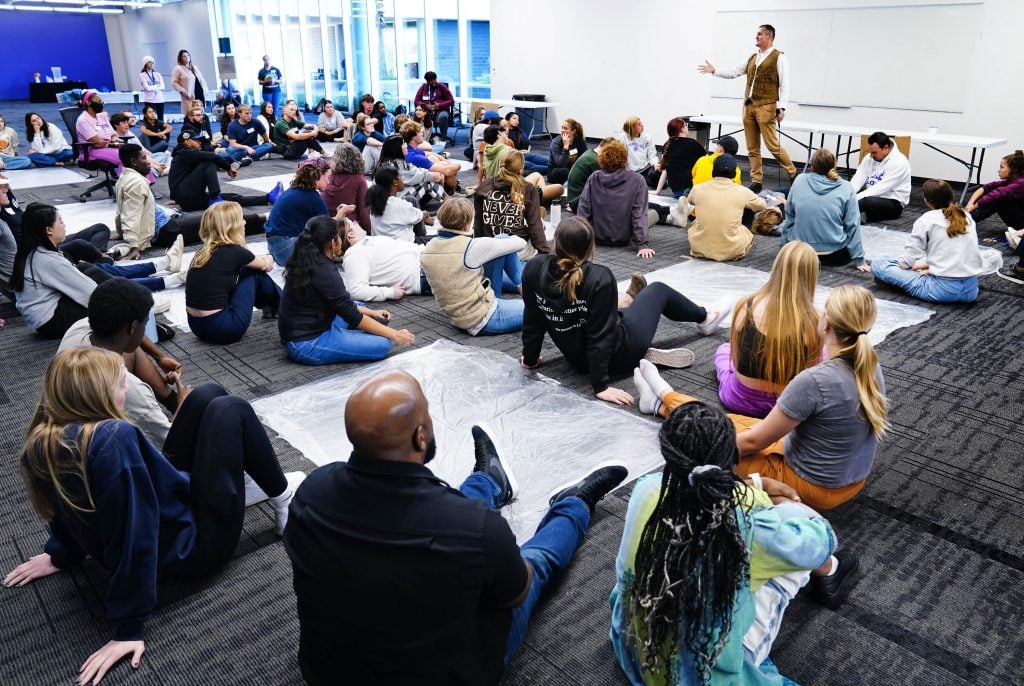
Families huddled in circles didn’t look at one another as they frantically folded sheets of paper, then dipped their fingers in a bowl of homemade flour paste to make paper bags.
Ten minutes. Ten paper bags.
Ten paper bags good enough to sell to surrounding shops.
Ten paper bags to make enough money to pay the $180 for rent in the slums.
Surrounding villagers in dashikis pounded on steel pans, faster and faster, to speed the process, and after time was up, a member of each family rushed to the landlord with whatever money they had made to pay the rent, even though they did not have enough and owed rent, plus interest, from the week before.
David Begbie, director at the Hong Kong-based Crossroads Foundation, asked the families – actually Grand Canyon University students, faculty and staff alongside K-12 teachers and students, and members of nonprofits: “What’s one thing that struck your family?”
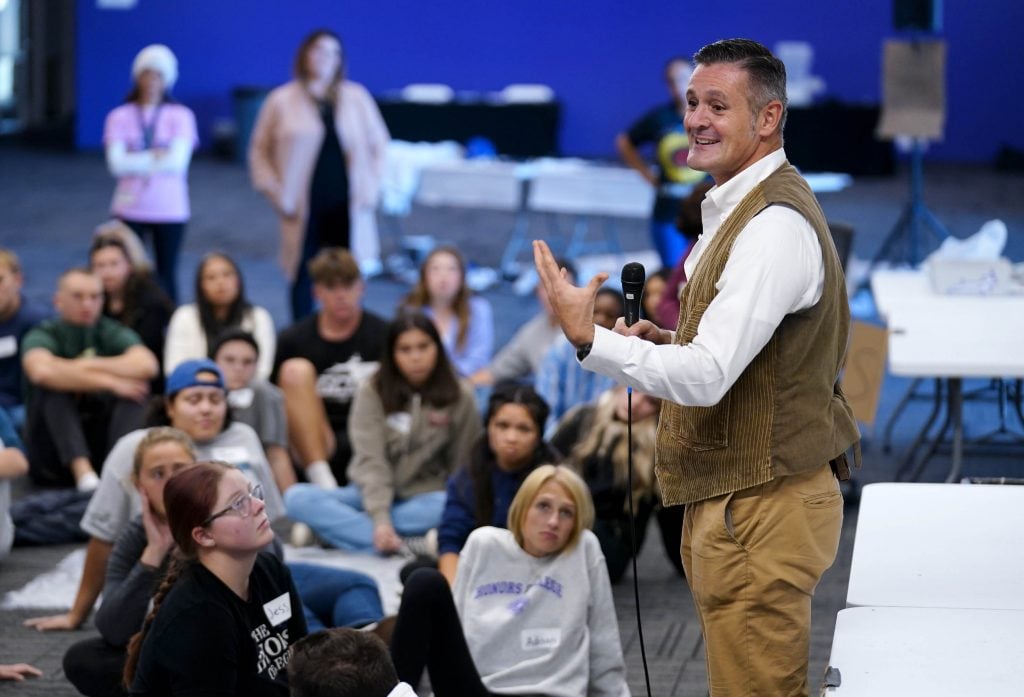
“The panic,” said one participant during the foundation’s Struggle for Survival poverty simulation at GCU on Wednesday. “Every time we had to go up to the front (to pay the landlord), it got harder and harder because you had to bring more and more (money).”
Another participant piped up, “We talked a little bit about the break in our morals; we had to do what we had to do to survive.”
Dr. Jon Valla, GCU College of Natural Sciences associate dean, added, “You didn’t have time to think about anything else, other than just producing.”
The poverty simulation was one of hundreds the nonprofit Crossroads Foundation, which redistributes goods to people in need across 90 countries, has conducted for almost two decades.
“Instead of a five-star (gala) event,” to celebrate the organization’s 10th anniversary, Begbie said, “We had this nutty idea. Why don’t we bring CEO's from Hong Kong to where we serve on an old army base? Why don’t we strip them of their possessions? We’ll take away their wallet, their watch, their cellphone, their laptop. … We’ll have them sleep on the ground, eat with their hands. For 24 hours, let’s let these CEO’s feel a fraction of what it’s like for the people we serve.”
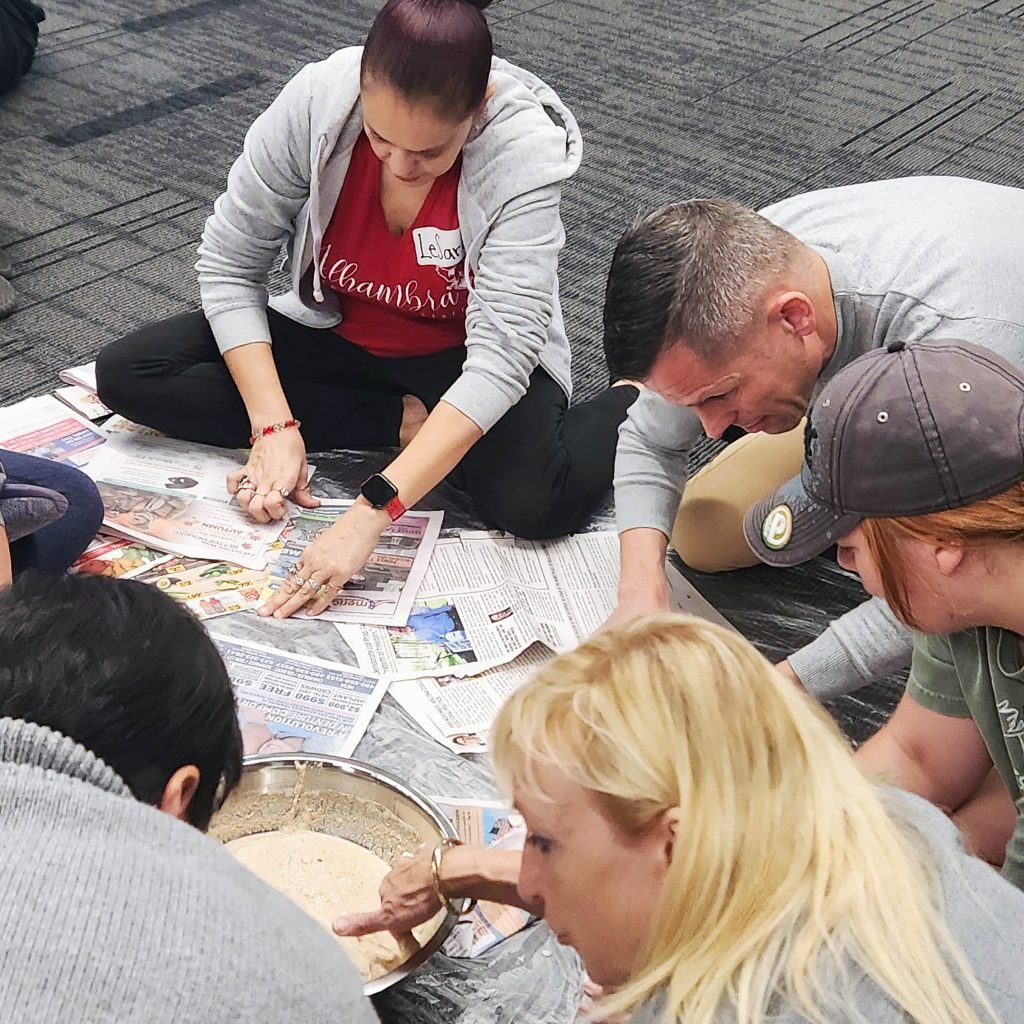
Then the United Nations called about putting together a session for the World Economic Forum. World leaders like Richard Branson have participated in the foundation’s poverty simulations, and now students at GCU.
“The world is not OK,” said Begbie to GCU participants and community members before stripping them of their cellphones, laptops and earbuds in preparation for the simulation in Building 71 at 27th Avenue and Camelback Road. “I’m not surprising anybody. But the challenge is, I have found, not knowing that the world has difficulties. The challenge is knowing, what the heck do I do in response. …. I have wrestled my whole life with that question.”
Crossroads’ poverty simulation was something GCU electrical engineering senior Caleb Noble helped bring to campus.
Noble was born in Singapore and grew up in Hong Kong, where his father, Jason, is the corporate and nongovernmental organization engagement strategist for the Crossroads Foundation.
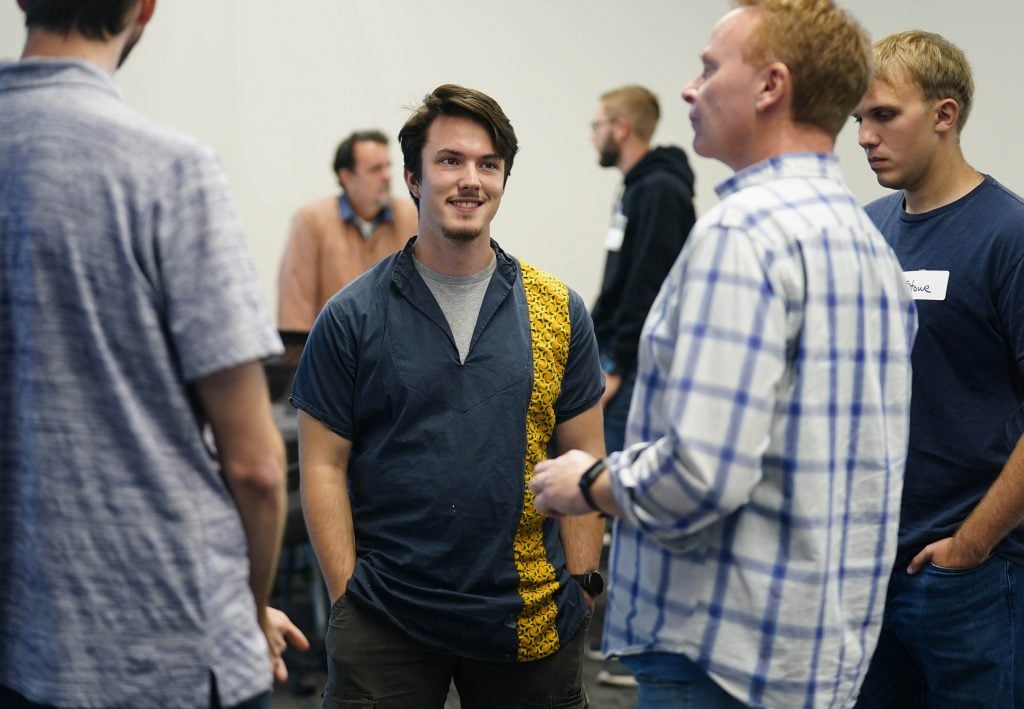
“We wanted to be able to share this experience with GCU students just because of how much these students connected in the neighborhood (with west Phoenix's vulnerable populations),” said Noble, whose father helped run the simulation along with his younger brother, also a GCU student. “Sometimes there’s so much struggle to get students to understand or to see it. The hope was to bring the simulation here and then also just give an international perspective on the world that Americans, like myself, so often lack.”
Noble has seen firsthand human poverty on a global scale.
“It was cool to have that perspective growing up,” he said. “You don’t realize how crazy it is – visiting those countries … seeing the slums.”
Noble chose to attend GCU after K12 Educational Development Vice President Dan Egeler visited his school, International Christian School of Hong Kong.
“That introduction gripped him,” Egeler said of his talk at Noble's school, “and he told his dad he wanted to explore GCU as a university.”
It was through Noble that he was invited to return to Hong Kong on his next trip to Asia for GCU. He spent a day at the Crossroads headquarters and participated in a poverty simulation. Soon, plans were in place to bring it to GCU.
Egeler said the Struggle to Survive event was so important to bring here, where the university has invested $1.5 billion into the surrounding community in one of the most under-resourced areas of Arizona.
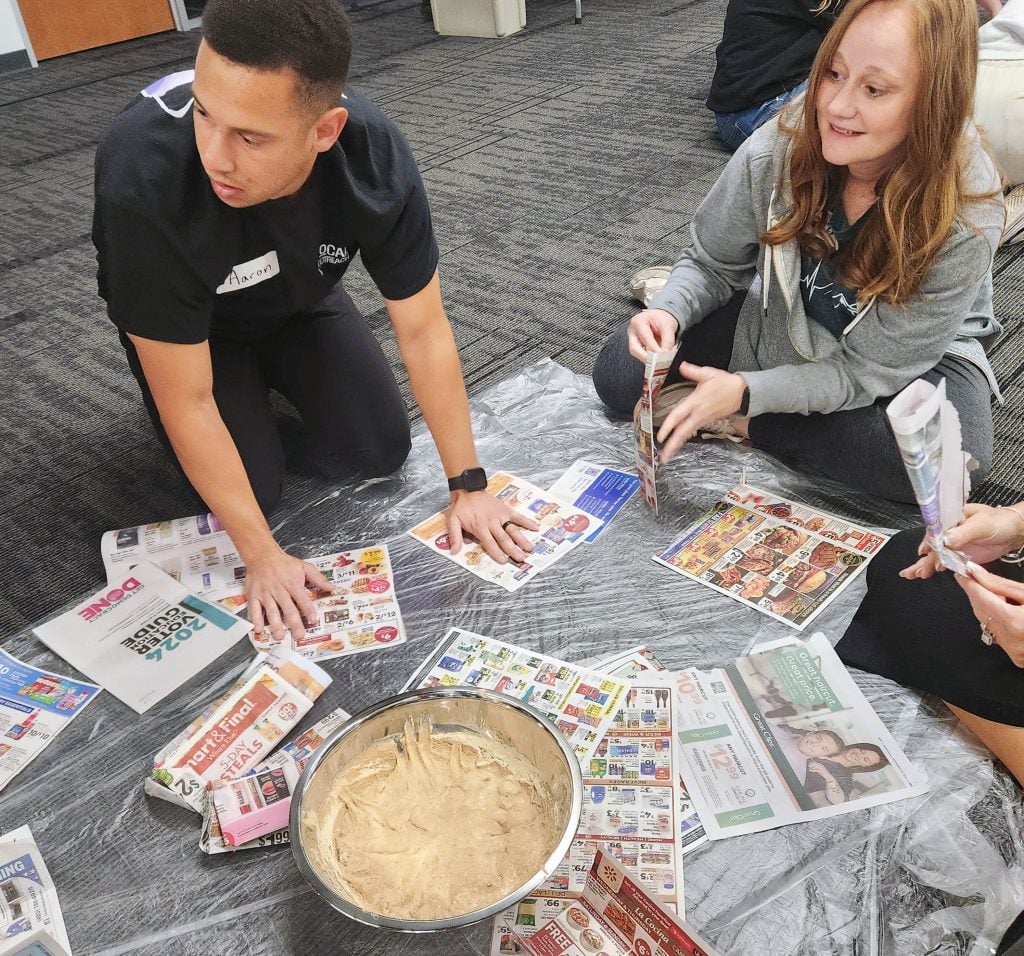
“This is the heartbeat of GCU, when you think of the (university’s) five-point plan to serve the community.
“Poverty and the struggle for survival transcends culture. Whether in Bengaluru, India; Manila, Philippines; Sao Paolo, Brazil; Lagos, Nigeria; or Phoenix, Arizona, it’s the same.
“So we thought it was important for public school educators or corporations in the Valley to understand what the struggle for survival was like.”
Egeler said he hoped students sharpened their global perspective a little more after the event but, even more, that they had a little more insight into poverty.
“Phoenix has (poverty and global) populations here that are hidden, a lot of people don’t realize they’re here,” he said. “A lot of people don’t understand that’s part of the dynamic, as well – local, as well as global.”
The K12 Educational Development department partnered with the Honors College in facilitating the simulation on campus.
“Dr. Egeler, as he likes to say, knows the heartbeat of our college in terms of who we are, what we stand for and how we want to develop our students,” said Anya Cofrancesco, program manager for the Honors College and Global Studies. “Bringing those values of global education, global awareness and cultural awareness and developing our students in that realm is very important.”
Cofrancesco, who is from Ukraine, has visited more than a dozen countries alongside GCU’s Honors students over the years.
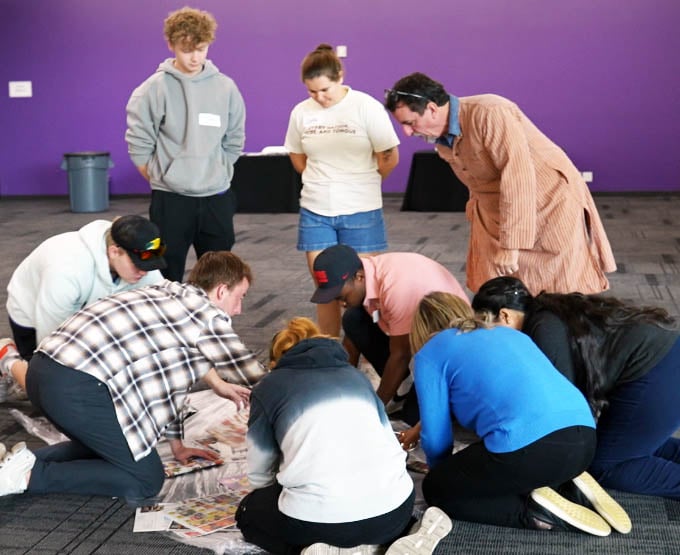
“It’s obviously such an important topic for students to understand," she said. "Yes, they can read about global poverty in textbooks, and they can watch documentaries. But there’s nothing that comes close to being in an environment where they have to experience it. … This is giving them a very, very slight glimpse into what it takes and what people struggle with on a daily basis.”
Cofrancesco said there is a line from the Crossroads Foundation website that stuck with her throughout the poverty simulation: “I cannot understand a man until I walk a mile in his shoes. That kind of embodies the whole experience.”
During the talk after the simulation, one group of participants who came down with an “illness,” expressed how it was stressful for the rest of the family who had to take up the slack.
They were walking that mile.
“I don’t know how many of us think about the economic cost of sickness,” Begbie said. “For most of us, being sick doesn’t change their income.”
But for those experiencing poverty, the impact can be overwhelming.
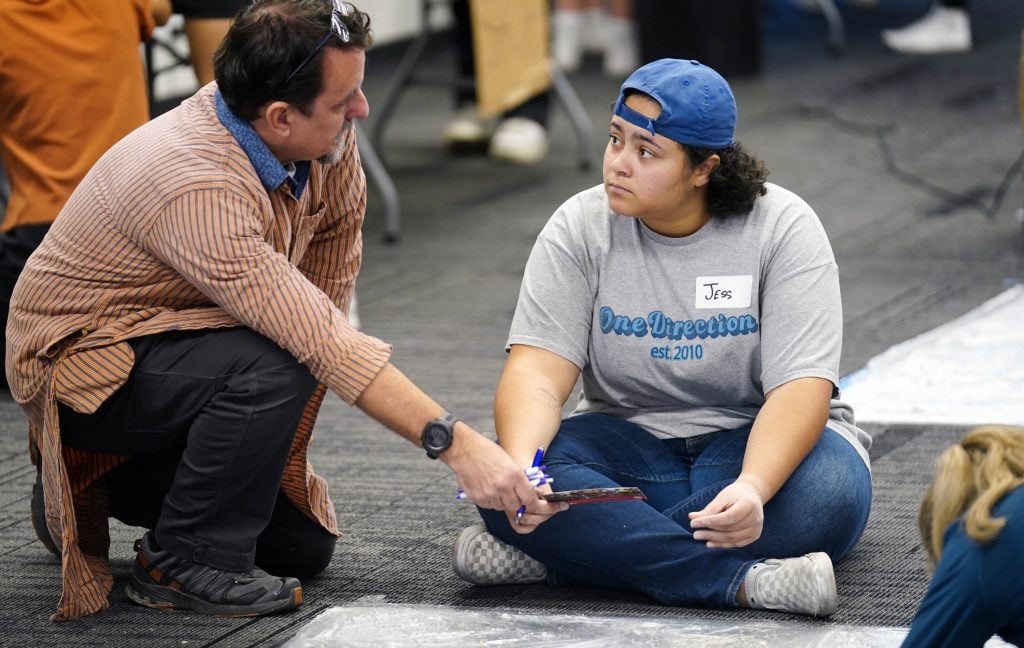
At the end of the simulation, Begbie asked participants to guess how much income families make from selling paper bags. Working 10-12 hours a day, an able bodied person can make 200 high quality bags. In India, he said, that amounts to 25 cents.
Freshman Rachel Schaus, an environmental science freshman and honors student, has traveled to Mexico and Liberia but signed up for Struggle for Survival to broaden her perspective even more.
What she took away from the event, she said, is “just the reminder that we can still make a difference … and to remember that God is with us and He can help us make a difference and find those opportunities.”
GCU Manager of Internal Communications Lana Sweeten-Shults can be reached at [email protected] or at 602-639-7901.
***
Related content:
GCU News: GCU students and refugee children shower love on one another
GCU News: Alumnus' nonprofit finds a new partner in GCU CityServe
GCU News: How GCU has embraced the most vulnerable populations









































































